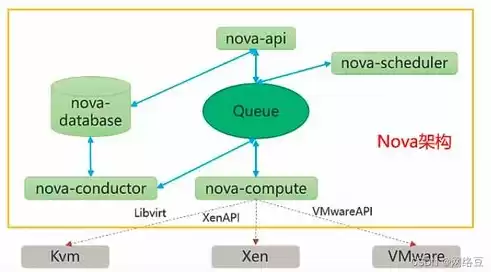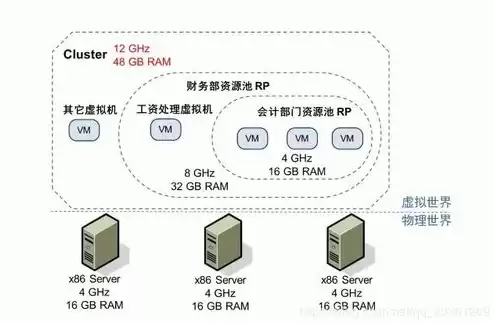虚拟化与云计算密切相关。虚拟化是云计算的基础技术,通过创建虚拟资源,如虚拟机、存储和网络,使云计算成为可能。云计算利用虚拟化技术提供按需、可扩展的服务,而虚拟化则通过云计算平台优化资源利用和性能。这两者共同推动了现代IT基础设施的发展。
The relationship between virtualization and cloud computing is an intricate one, as both technologies play a crucial role in the modern computing landscape. To understand their connection, it is essential to delve into the core concepts of each and explore how they complement each other. This article aims to shed light on the relationship between virtualization and cloud computing, emphasizing their interdependence and the benefits they offer to organizations.
Virtualization is a foundational technology that enables the creation of virtual machines (VMs) or virtual environments. It allows multiple operating systems to run on a single physical machine, thereby maximizing resource utilization and enhancing flexibility. By abstracting the underlying hardware, virtualization enables the seamless allocation of resources and facilitates efficient management of computing environments.
On the other hand, cloud computing is a broader concept that encompasses the delivery of various services over the internet. These services include software as a service (SaaS), platform as a service (PaaS), and infrastructure as a service (IaaS). Cloud computing provides scalable and on-demand access to computing resources, enabling organizations to focus on their core business activities rather than managing IT infrastructure.
The relationship between virtualization and cloud computing can be described in several ways:

图片来源于网络,如有侵权联系删除
1、Virtualization as a Building Block for Cloud Computing:
Virtualization is often considered a prerequisite for cloud computing. By creating virtual machines, organizations can pool their computing resources and offer them as a service to users. This pooling of resources allows for efficient resource allocation, dynamic scaling, and improved fault tolerance, which are essential characteristics of cloud computing.
2、Enhanced Flexibility and Scalability:
Virtualization enables organizations to allocate resources dynamically, making it easier to scale their computing environments up or down based on demand. This flexibility is crucial for cloud computing, as it allows service providers to offer scalable services to their customers. With virtualization, cloud providers can quickly provision and de-provision resources, ensuring optimal performance and cost-effectiveness.

图片来源于网络,如有侵权联系删除
3、Improved Resource Utilization:
Virtualization maximizes resource utilization by allowing multiple operating systems to run on a single physical machine. This is particularly beneficial in cloud computing scenarios, where resource utilization is a key concern. By leveraging virtualization, cloud providers can reduce hardware costs and energy consumption, making cloud computing more sustainable.
4、Enhanced Security:
Virtualization provides a layer of isolation between virtual machines, which enhances security in cloud computing environments. By isolating applications and data, virtualization reduces the risk of data breaches and malware infections. This isolation is particularly important in multi-tenant cloud environments, where different users share the same physical infrastructure.

图片来源于网络,如有侵权联系删除
5、Simplified Management:
Virtualization simplifies the management of computing environments, which is a significant advantage in cloud computing. With virtualization, IT administrators can manage a large number of virtual machines from a single console, reducing the complexity of managing physical hardware. This centralized management approach is essential for efficient cloud service delivery.
In conclusion, the relationship between virtualization and cloud computing is a symbiotic one. Virtualization provides the foundational technology that enables cloud computing to thrive, while cloud computing leverages virtualization to offer scalable, flexible, and cost-effective services. By understanding the interconnection between these two technologies, organizations can make informed decisions about their IT infrastructure and maximize the benefits of both virtualization and cloud computing.


评论列表